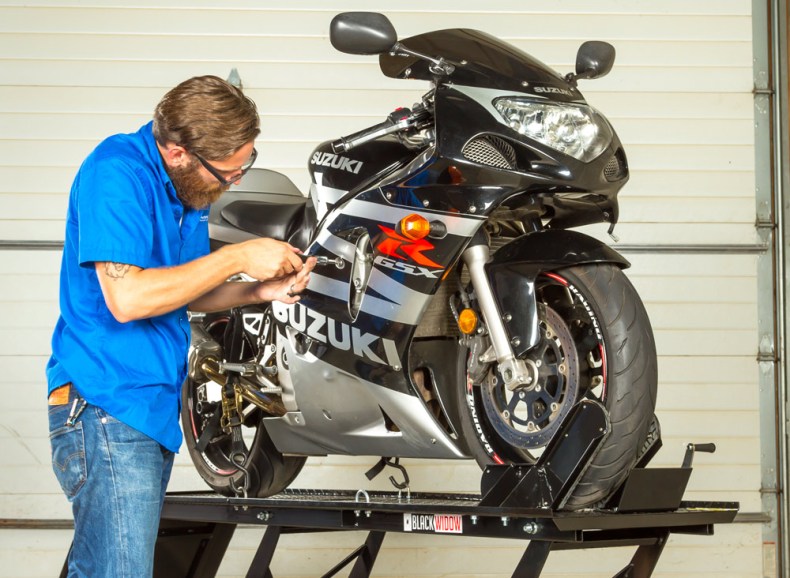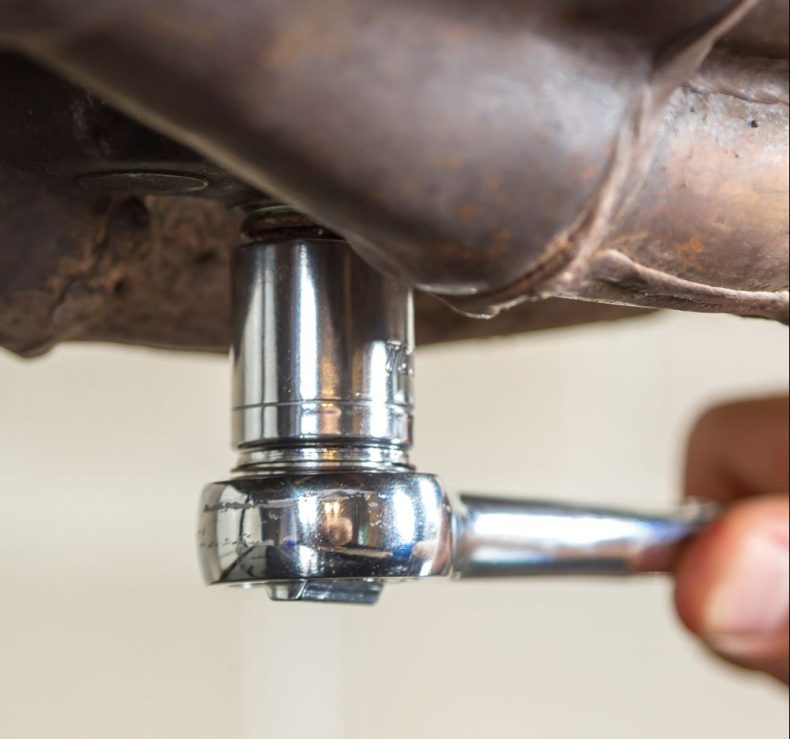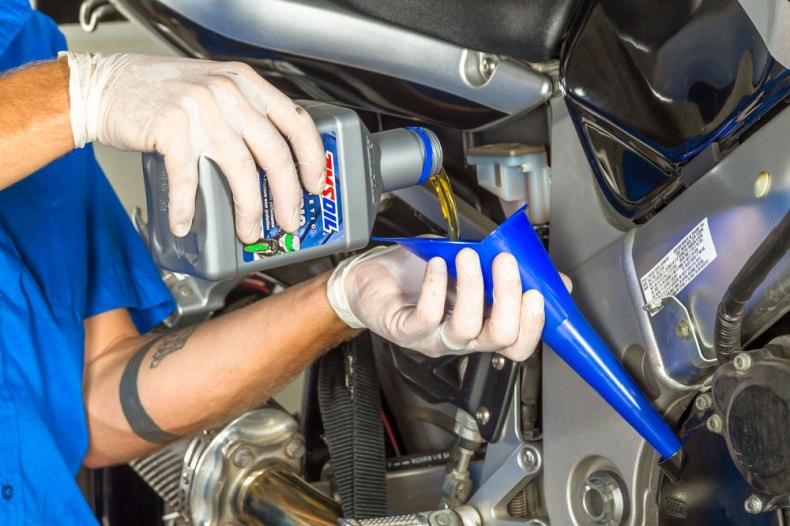Changing the Oil in your Motorcycle
Guest Blog Post by Monica Pretzl
Changing oil in your motorcycle is relatively quick and easy.
It’s also important; regular oil changes prolong engine life and keep your bike running smoothly all season. We broke down the process into step-by-step directions for both novice and experienced riders.
Before beginning, you will need some basic supplies. And you must know what type of oil is best for your bike. Be sure to consult your owner’s manual to ensure you have the correct tools.
Required supplies to change oil in your motorcycle
• High-quality oil – AMSOIL has a helpful easy-to-use guide for finding the right oil for your bike
• Oil filter – use above look-up guide link
• Drain pan and funnel
• A set of box or socket wrenches
• Clean rags and gloves
Recommended supplies
• A motorcycle lift table to bring the bike up to a more accessible height. I use a rear wheel lift/stand.
• Torque wrench
You may want to take your bike out for a quick 10-minute ride to heat up the oil, which will help it drain faster.
However, if you’re a beginner, we recommend changing the oil cold a few times to avoid the risk of burning yourself. (I didn’t write this)
Time needed: 30 minutes.
How to change oil on a motorcycle
- Clean your work area
Before you get started, make sure the oil-change area is clean and free of dust and other contaminants.
- Access the drain plug and oil filter
Next, remove any parts that may be blocking access to the drain plug and filter (some bikes may require you to remove the foot peg or fairing).
- Drain the oil
Once you have access, place the drain pan under the drain plug to catch the old oil. Remove the oil-fill plug first, then remove the drain plug.
- Remove the oil filter
While the old oil is draining, remove the old filter.
If your bike uses a spin-on oil filter, simply unscrew the filter. If it does not come off by hand, invest in an oil filter wrench to help remove it.
For bikes that use a cartridge-type oil filter, the tools and procedure required for removal may vary. Refer to your owner’s manual.
- Install a new oil filter
With a clean rag, wipe the area where the oil-filter gasket contacts the engine. Then, use your finger to spread some new oil on the gasket. This will help create a good seal.
If your bike uses a spin-on oil filter, install the new oil filter by hand. The filter should be snug, but still removable by hand.
If your bike uses a cartridge-type oil filter, tools may be necessary to reinstall the oil-filter cover. Refer to your owner’s manual for instruction.
- Reinstall the drain plug
Let the old oil drain 5-10 minutes until the stream has reduced to a trickle. Reinstall the oil-drain plug. Screw it in by hand first to reduce the risk of cross-threading. If you encounter resistance, back it out and try again.
Once the plug is snug, use a torque wrench set to the manufacturer’s torque specifications (refer to the owner’s manual) and finish tightening. If you do not have a torque wrench, give the plug an additional quarter to a half turn with a box wrench or socket wrench. Do not overtighten.
- Add new motorcycle oil
Refer to your owner’s manual to see how much oil is required. Using a funnel, add most of the oil. Stop periodically to check the oil level.
Depending on the bike, you can check the oil level via a sight glass on the side of the engine or a dipstick. Now, make sure the bike is level when checking the oil. Add enough oil so the level is between the “Add” and “Full” marks in the sight glass or on the dipstick. Reinstall the oil-fill plug.
- Properly dispose of the used oil and filter
Make sure to dispose of your used oil and filter properly (many local dumps or auto parts stores will take used oil and recycle it). Run the engine to check for any leaks, then double-check the oil level. Add or remove oil if necessary.
With some practice, changing your motorcycle oil is a quick, easy process that can be done from the convenience of your own garage.
Check out this video showing an oil change in a Harley-Davidson motorcycle.











